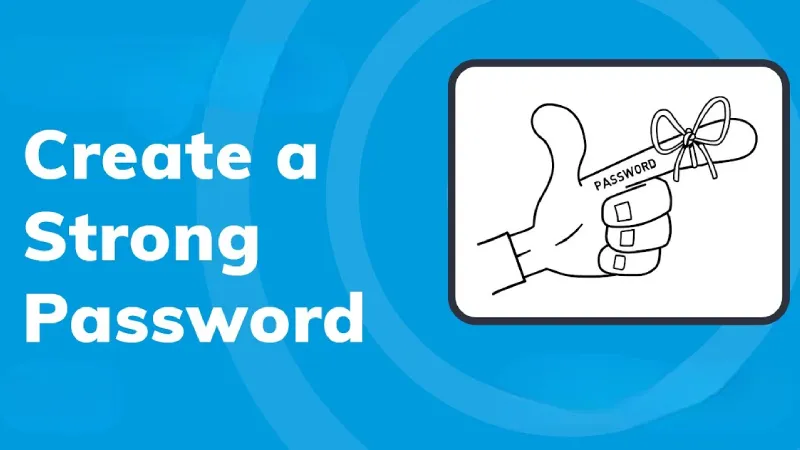
You might think that a strong password is all you need to protect your sensitive information, but the reality is far more complex. As cyber threats evolve, so must your approach to password security. What if there are hidden vulnerabilities in your current methods that could leave you exposed?
Embracing length and complexity enhances security while using a passphrase can simplify memorization. Additionally, leveraging a random password generator can streamline the process of crafting robust passwords. Organizations and individuals must understand password security principles, as well as adopt advanced tools, like encrypted password generators.
However, as cyber threats become increasingly sophisticated, the traditional password is often no longer sufficient to safeguard against breaches. Discovering how to effectively generate and manage secure passwords could be the key to fortifying your digital defenses.
Guide to Generating and Managing Secure Passwords
To create secure passwords, you need to randomize formats and prioritize character uniqueness.
Randomize Password Formats
Randomizing password formats is essential for enhancing security and reducing the risk of unauthorized access. By avoiding predictable structures, you can create passwords that resist common hacking techniques.
Instead of relying on sequential combinations like “Password123,” aim for unpredictable combinations of characters, numbers, and symbols. To achieve this, mix up your character selection. Use uppercase and lowercase letters in unconventional orders.
For instance, a password such as “G!b7&Y2@qF” provides greater security than a simple name followed by a birth year. Include non-traditional symbols, such as punctuation marks and special characters. An example of this technique is the password “%Ght^3$Z&*,” which is difficult to guess due to its randomization.
Prioritize Character Uniqueness
When creating secure passwords, prioritizing character uniqueness is vital for maximizing their effectiveness against unauthorized access. Diverse characters greatly reduce the likelihood of your password being guessed or cracked through brute-force attacks.
To enhance uniqueness, avoid repetition within your password. For instance, a password like “aaa123” is markedly weaker than “a1B#9X.” Instead, try to mix letters, numbers, and special characters. A strong example would be “4g^Tz8&!@W,” which demonstrates a well-structured approach to character diversity.
Moreover, diversifies passwords across platforms. Never reuse passwords for different accounts, as this can lead to cascading security breaches. If one password is compromised, others might be at risk if they share similarities.
Embrace Length and Complexity
Length and complexity are crucial factors in creating secure passwords that stand up to modern hacking techniques. Longer passwords, typically ranging from 12 to 16 characters or more, exponentially increase the number of potential combinations, making them considerably harder to crack.
In addition to length, complexity plays a critical role in password security. Incorporating a mix of uppercase letters, lowercase letters, numbers, and special characters is essential.
However, you must strike a balance; overly intricate combinations can become impractical to remember. Aim for structured randomness, this means using a memorable yet complex pattern. For example, a password like j5N@2xZ$%dQ1 combines various character types while remaining reasonably memorable.
Try Using a Passphrase
In today’s landscape of cybersecurity threats, utilizing a passphrase can greatly enhance your password security. A passphrase is a sequence of unrelated words or phrases that create a longer, easier-to-remember password.
By combining random words, you not only increase complexity but also improve memorability. For instance, consider using a combination like Blue$Duck!Candy@42. This approach makes it harder for attackers to guess your password.
When crafting your passphrase, avoid common phrases or quotes, as these can be easily predicted. Instead, randomize your word choices and incorporate numbers or symbols. For example, *Starlight-Horse9Water% is a robust option that maintains readability while enhancing security.
Leverage a Random Password Generator
A random password generator is an important tool for creating secure passwords effortlessly. These generators produce high-entropy passwords that are unpredictable and resistant to brute-force attacks, greatly enhancing your security posture.
By eliminating human bias in password creation, you guarantee that each password is unique and complex, making it difficult for attackers to guess. To leverage a random password generator, consider using reputable tools like LastPass, Dashlane, or KeePass, which offer built-in generators.
While online tools, such as the Strong Password Generator, can also be effective, exercise caution and verify their security features before use. When generating passwords, set specific parameters to meet your security needs.
Store Your Passwords Securely
To guarantee your passwords remain secure, adopt effective storage methods that protect your credentials from unauthorized access. Even the strongest password can be compromised if stored insecurely, so using a password manager is imperative.
Tools like LastPass, Dashlane, or KeePass securely encrypt and store your passwords, providing benefits like autofill options and secure sharing features. Moreover, enable Two-Factor Authentication (2FA) for added security when accessing your password manager.
Why is Creating a Safe Password Important?

Creating a safe password is essential for protecting your accounts from unauthorized access.
Protection Against Unauthorized Access
Many individuals underestimate the critical role a strong password plays in safeguarding their personal information. A robust password acts as the first line of defense against unauthorized access, effectively preventing malicious actors from breaching your digital accounts.
When you use weak passwords, you expose yourself to significant risks, including unauthorized access to sensitive data such as emails, financial details, medical records, and social media accounts.
Safeguards Financial Assets
A secure password is essential for protecting your financial assets in an increasingly digital world. With the rise of online banking and e-commerce, you’re likely storing sensitive information such as credit card details, banking credentials, and digital wallets.
A strong password acts as your first line of defense, ensuring these financial resources remain safeguarded against unauthorized access. Weak passwords greatly heighten the risk of fraud.
Cybercriminals specifically target accounts with easily guessable passwords to execute unauthorized transactions or withdraw funds. By using a secure password, you mitigate these risks, creating a barrier that deters potential threats.
Protects Against Cyber Threats
In today’s digital landscape, strong passwords serve as an essential barrier against cyber threats. Hackers frequently employ brute-force attacks, utilizing automated tools to guess your passwords.
When you create a password with high entropy, meaning it’s long, complex, and unpredictable, you greatly hinder these attacks. A strong password makes it impractical for hackers to crack your account, as the sheer number of combinations becomes overwhelming.
Does a strong password guarantee my safety from hackers?
While a strong password is an essential component of online security, it doesn’t provide absolute protection against hackers. Even the most complex password can be compromised through various means, such as phishing attacks, malware, or social engineering tactics.
Cybercriminals continually evolve their strategies, making it vital to understand that a password alone isn’t enough. To enhance your security, you should adopt a multi-layered approach. Implementing two-factor authentication (2FA) means you have to use more than just your password, like a text message or app.
How does an encrypted password generator work?
Utilizing advanced algorithms, encrypted password generators create highly secure and unpredictable passwords that meet stringent complexity requirements. These generators rely on cryptographic libraries that implement complex mathematical functions to guarantee the randomness of each output.
This randomness is vital because it prevents predictable patterns that hackers often exploit. The algorithms employ techniques such as hashing and salting to further enhance security. Passwords are hashed into a string of fixed-length characters, and salting adds random data to the password before it is hashed.
Strengthen Your Digital Armor: Importance of Unique Passwords
Creating and managing secure passwords is essential in today’s digital landscape. Did you know that 81% of data breaches stem from weak or stolen passwords? By prioritizing strong, unique passwords and using password managers, you can greatly reduce your risk of falling victim to cyber threats.
Remember to update your passwords regularly and stay vigilant against phishing attempts to further safeguard your digital identity. Your proactive approach can make all the difference in protecting your sensitive information.
